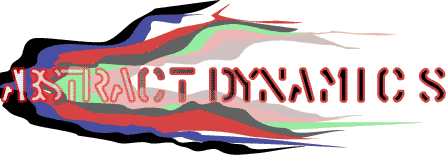May 09, 2003
Beyond Friendster: Openness and the Future of Social Networks
Posted this at marginwalker.org, reprinting it here for your info and my archives.
There has been a lot of talk of Friendster and its kin in the network lately. The sharpest of the observations so far comes from Marginwalker's co-founder Adam Greenfield. As usual Adam's observations are right on the mark. However his conclusion throws me off a bit:
Something tells me these services won't reach their maximum potential until they can incorporate our less salutary feelings about association: the latent but powerful distinctions we make, the dislikes and fears we, however subtly, import into our presentation of self. These are precisely the shadows we may have "gone online" to escape in the first place, but they are a part of what we've always meant by "social," they serve a function evolved over a very long span of time, and I believe we ignore them at some disservice to our ambitions.
Now Adam may very well be right, but I really hope he isn't. We have the ability to use services like Friendster and its descendent's to effect profound changes on the make up of society. Instead of giving into the base discrimination (or "shadows") we incorporate into our daily life I think we should be using technology to eliminate the subtle biases that underlie our culture and selves.
Openness is a potent tool. The public emergence of homosexual culture over the past 35 years provides a telling example. Before Stonewall gays and lesbians stayed hidden from society. And as a result homophobia was able to flourish. You can be certain a lot of homophobic conversations took place in front of closet homosexuals who were too afraid to speak out. Now in 2003 the stigma of homophobia, while still present, is rapidly fading. Major presidential candidates are making gay rights a campaign issue in America, and only the far right gives a damn. Its pretty damn hard to be homophobic when you become aware of the fact that a handful of your friends happen to be gay. And at least in urban America its pretty damn hard not have a handful of gay friends.
The very openness that Adam takes offense too in Friendster, to me is an engine of social change. It forces us to reevaluate some of our hidden prejudices and calls into question some of the forces that segregate society. Now its entirely possible, as Adam seems to imply, that when faces with this sort of info, people will just look upon their friends for the worse. But I personally believe that in the long run the results would be positive. There is a mess of small discriminations that drive many of our social interactions. And when placed into larger contexts they just look silly.
Sousveillance is a term, coined by Steve Mann, which has been gaining some buzz of late. Its roughly the opposite of surveillance. Instead of a power watching over the people, sousveillance is the people watching over a power, and as a corollary watching over themselves. The openness that the architecture of Friendster creates is an integral part of a sousveillance society. And we as a culture are going to have to either learn to embrace the openness or attempt to make it go away.
This is all part of a larger emerging conflict between transparency and privacy, and we are going to dealing with the ramifications for a long time. But for the moment what I'm really interested in is how do we build better social networking technology? Adam is probably right that Friendster, LinkedIn and company are just the beginning and I agree that the ideal solution is an open source one. An open social networking standard which permits people to choose and build their own interfaces. I think some standard will inevitably be emerging in the next few years, and hopefully its not a proprietary one.
The question I have is what do we want this network to do? Is it there to cement our social networks and further our interactions within them, or is the goal to open up our social boundaries and push us towards new cultural understandings? These are delicate lines to walk. And if we build the right structures I think there is a tremendous opportunity to change society for the better. But there is a constant threat of building the opposite, tools which reinforce existing inequalities. How do we ensure we do the right thing?
Posted by William Blaze at May 9, 2003 09:30 PM | TrackBack


